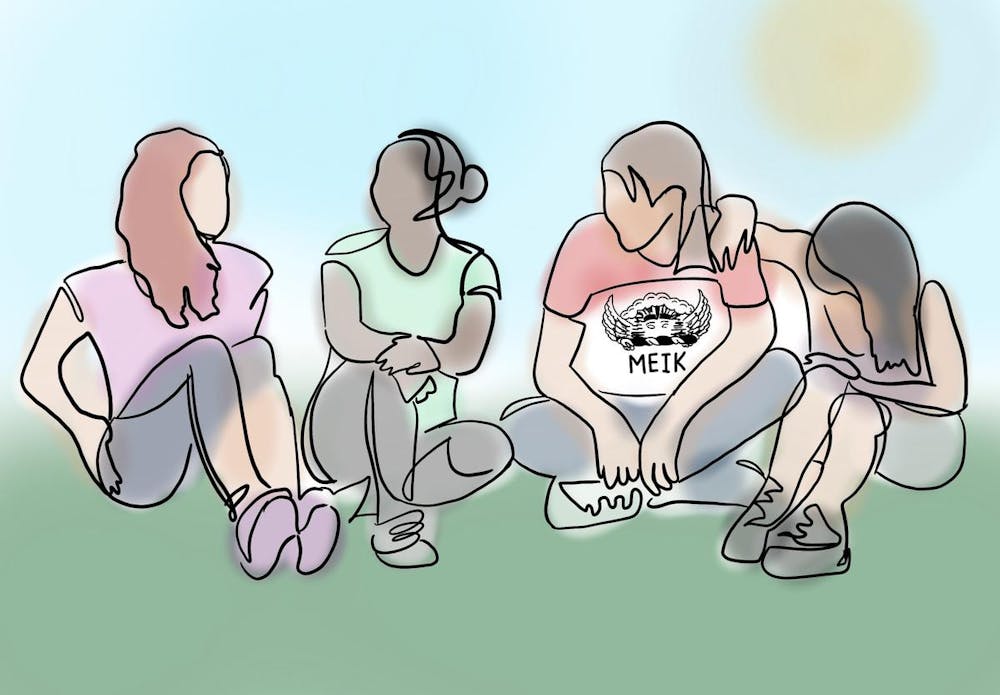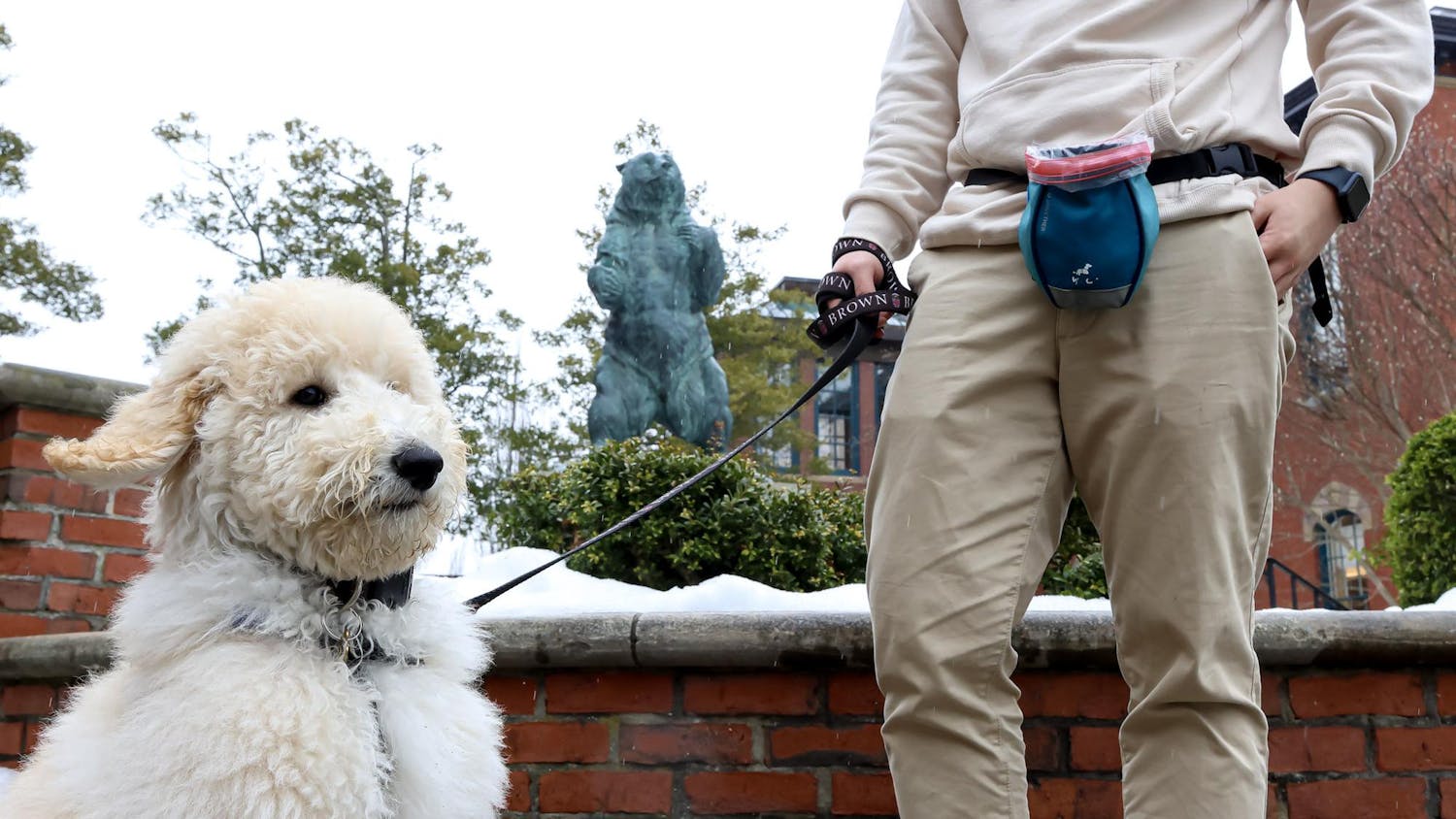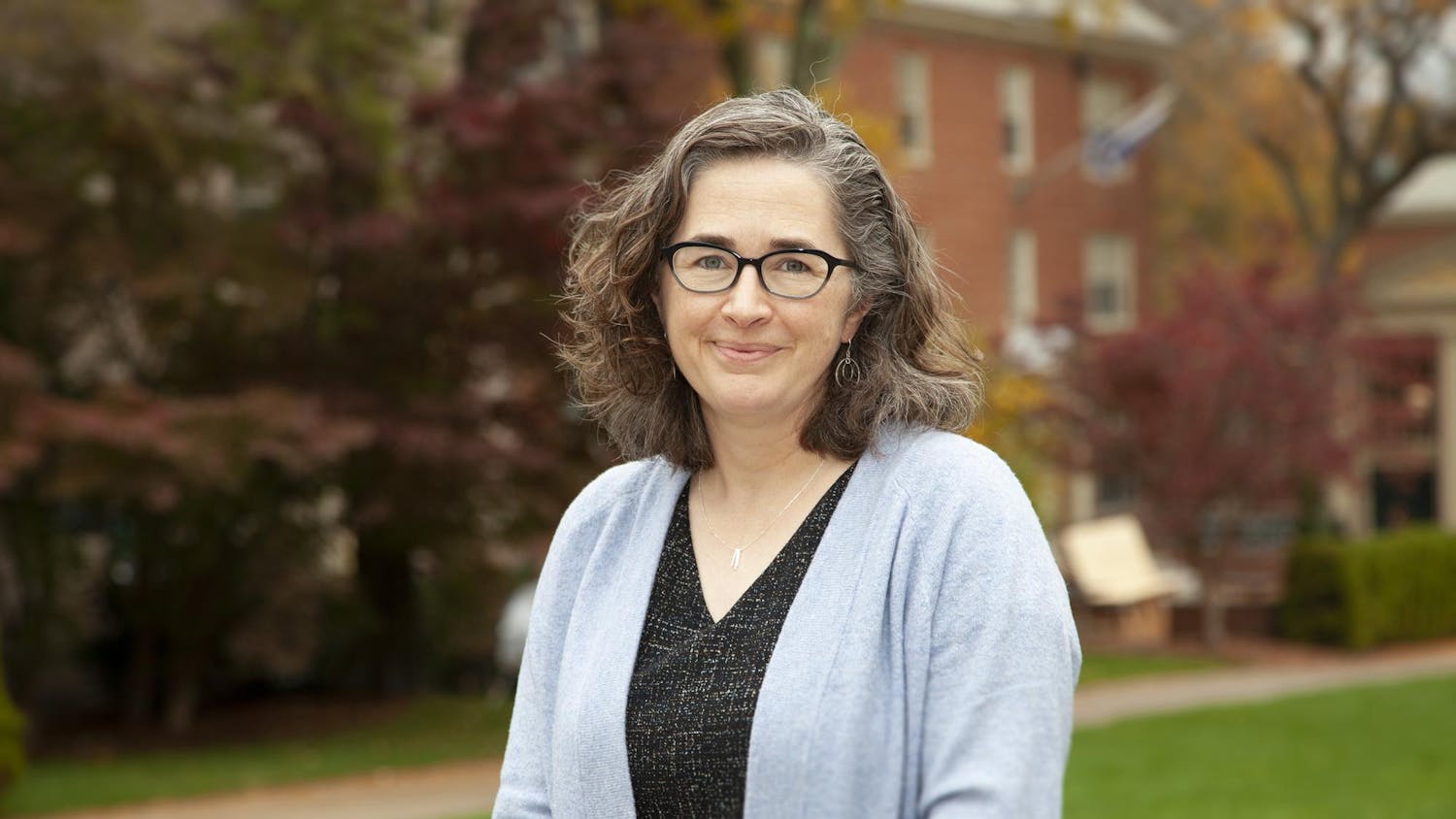When first-years at Brown move onto campus, some of the first people they meet are their Meiklejohn Peer Advisors.
The Meiklejohn Peer Advising Program pairs returning students with groups of around four to six first-year or first-time students. Alongside the groups’ faculty advisors, Meiklejohns — or Meiks, more colloquially — get to know their advisees and provide academic support throughout their first year at Brown.
According to Meiklejohn Leader Cecile Schreidah ’24, there are 380 Meiks this year. Schreidah explained that after being hired to the program, Meiks are placed into groups by The College and are notified of their group placement over the summer. Most first-year groups will receive one Meik, while others may have two.
During orientation, Meiks assist their advisees with course registration. Throughout the year, they “offer a student perspective on the university experience, while engendering an informal, open dialogue that proves indispensable to first-year and first-time students,” according to the program website. ”
As the school year comes to an end, The Herald spoke to four first-year students about their experiences with the Meiklejohn program this year.
Everton Prospere ’27 met his Meik during first-year orientation. Since orientation week, Prospere said he has communicated with his Meik once or twice a month over text.
Throughout the semester, Prospere’s Meik invited the advising group to “quite a few different lunches to get to know each other.” “She’s always willing to help and always willing to listen,” he said.
In addition to assisting with academics, Prospere’s Meik also provided extracurricular support, inviting him to different student group events that related to his interests.
“I was blessed to have a great Meiklejohn,” he added. Prospere noted, though, that he feels “many people did not have such a similar experience.”
Malia Chavinson ’27 wrote in a message to The Herald that while her two Meiks were “very friendly and helpful,” she “did not see them often and did not feel like they went above and beyond to make sure we were all taken care of or in the loop.”
Chavinson added that she wished advising groups had “more community bonding opportunities” and stronger guidance for students hoping to pursue independent concentrations, which Chavinson considered her first semester.
Schreidah noted that the program pays for advising groups — including the faculty advisor and Meik — to eat lunch at the Faculty Club once per semester for bonding.
Jeffrey Pogue ’27 had a similar experience. “I’ve talked to (my Meik) about four times,” he said.
“I would love someone who was older and in my field who I would know,” Pogue said, citing the fact that he and his Meik do not share the same interests.
To improve the program, Pogue suggested that first-year students receive new Meiks once they decide what they want to pursue.
According to Schreidah, this role of a personalized, field-specific advisor is fulfilled by students’ concentration advisors, which first-year students receive after declaring their concentration in their fourth semester. Meiks are not “just academic advisors,” she wrote in a message to The Herald. They “are there for every aspect of the transition to college.”
Matthew Kotcher ’27 had a positive experience with his Meiklejohn. “It helped to have someone around who was around my age but also experienced enough to know the ropes and provide advice,” he wrote in a message to The Herald.
“My experience as an advisee actually made me want to become a Meiklehjon myself,” Kotcher shared. He was accepted into the program and said he is looking forward to being able to “contribute to our community and support students who are undergoing the same transition” as he did.
In future years, Kotcher suggested that the program implement “structured team-building activities between Meiks and their advisees as part of the orientation schedule.”
When asked about bonding opportunities during orientation, Schreidah pointed to the Meik and Advisees Social, which occurs shortly after advisees select their courses for the fall semester.
The Meiklejohn Leadership Team received nearly 600 applications for next year’s program, according to Schreidah. They accepted 350 new and returning applicants to the program.

Leah Koritz is a senior staff writer covering science & research. Leah is from Dover, Massachusetts and studies Public Health and Judaic Studies. In her free time, Leah enjoys hiking, watching the Red Sox and playing with her dog, Boba.





